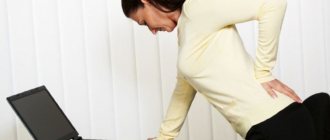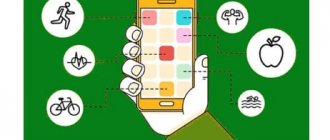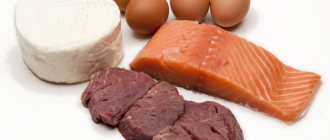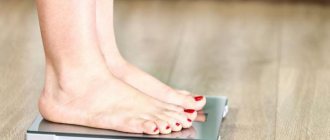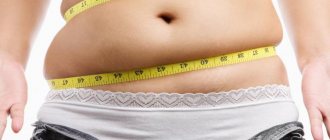Excessive enthusiasm for diets and the desire to lose weight as quickly as possible leads to disturbances in the functioning of the body. Most often this occurs due to a lack of essential nutrients. As a result, headache, weakness, and irritability appear. You cannot allow yourself to feel this way. It is necessary to understand why a headache occurs on a diet and remove the cause of the malaise. This will help you not harm yourself with your diet and get a positive result.
I’m on a diet for the 7th day, I’m dizzy, why?
My version is hypoglycemia.
If you cut down on carbohydrates too much and abruptly, you may feel dizzy. The blood sugar level drops to the lower limit; the body, roughly speaking, does not have enough energy. If you are on a “complete diet”, that is, simply half-starved, this is very possible. The decrease in carbohydrates must be compensated by an increase in protein and fat (yes, exactly fat, don’t listen to idiots about the “harm” of fat!) components. We reduce coals to zero; this is the main component that produces fat. But! We add fats - this is energy without the deposition of fat on the sides, proteins - this will save your muscles from “self-eating”. From this point of view complete fasting is preferable. On day 6-7, the natural fat burning mechanism starts, you begin to burn the fats accumulated in the body and eat from them. And hunger begins to be felt much less. A half-starved diet does not allow you to switch to endogenous fat nutrition. That is, you will switch - provided that you completely give up carbohydrates and in 2 - 4 weeks. Complete fasting - for 6 - 7 days. If you semi-starve with carbohydrates, you will ruin your health, since you will not be able to switch to fully endogenous nutrition. You can't fool the body. Learn materiel. And tell us better about your diet, it will be clearer what the cause of your condition is.
But! It's far from a fact that I'm right
Simply because a diet is not just fasting, but a kind of “medicine” for the body, and should be used only as prescribed by a doctor. Any diet should be selected by a doctor, taking into account the characteristics of the body, existing diseases, etc. And “going on a diet” just like that, of your own free will, stupidly for the sake of losing weight - this is generally unacceptable and dangerous! You can “die” forever and then not a single doctor will help you! And the first indicator that you are doing something wrong is dizziness and all the other consequences.
The diet should be prescribed only by a doctor, and strictly according to certain indications, taking into account the characteristics of your body. And self-medication in this case can lead to terrible and irreversible consequences!
And there is one proven way to lose weight: eat less. Especially very fatty ones. However, you don’t have to give up anything! Just learn to limit yourself, it’s much easier than going on some newfangled diet and then gaining even more weight. And move more! You just need to work off calories, not fight them!
And don’t forget: the body’s response to any fasting is completely different from what many people think! During a hunger strike, our body categorically refuses to burn fat, since it does not receive anything in return and uses it to a minimum! Plus the lack of vitamins and other useful substances. That's the whole reason for the problem!
So forget about any diets, and just eat less. Then there will be no dizziness, loss of strength, and most importantly, the weight will gradually drop to normal. And what is also very important, it will remain the same in the future, since you will simply get used to such nutrition. (Checked!).
Range of causes of headaches
A sudden change in diet can cause a response in the body and lead to a deterioration in general condition. All diets for weight loss are associated with a restriction in the variety of food (these are mono-diets) or with a decrease in the amount of food (essentially, these are hunger strikes). You should go on a diet gradually so that your body can painlessly adapt to a new diet.
Doctors note several main reasons why headaches occur when dieting:
- lack of glucose;
- overstrain of the hypothalamus;
- dehydration;
- intoxication;
- heavy workload in the gym;
- lack of deep sleep and nervous tension;
- sudden withdrawal of caffeine.
From this list you need to find your cause of headache and eliminate it. Sometimes there can be several reasons at once. Or at first the headache may hurt for one reason, and the next day for another. Therefore, you need to be aware of the state of your body, understand why you get a headache during a diet, and take the right measures to eliminate the cause.
Lack of glucose
Glucose is required for normal brain function. When blood sugar is low, the brain signals a lack of glucose with a nagging headache. In this state, a person may feel tired, nervous, and absent-minded. If blood sugar levels are below normal levels, hypoglycemic crises may occur, which are accompanied by headache, dizziness and even loss of consciousness.
The first pain due to lack of glucose begins approximately 15–16 hours after starting the diet. If the day before the diet the body did not receive enough carbohydrates, and it did not have time to stock up on them, then a headache may begin after 5-6 hours of the fast. A headache during weight loss may be the first signal of the onset of a hypoglycemic crisis, which is very dangerous for a person. You need to remember this and take action to eliminate it. You can at least drink a cup of strong tea with sugar. This will not affect your weight loss results, but your condition will improve.
Overstrain of the hypothalamus
Another cause of headaches on a diet, as experts note, may be increased activity of the hypothalamus. It is located in the center of the brain and is responsible for the feeling of hunger and satiety. During a starvation diet, signals about a lack of nutrients enter the hypothalamus from many organs, and it is under constant tension, resulting in headaches.
Intoxication of the body
The main goal of a weight loss diet is to reduce fatty tissue on the body. This occurs as a result of burning fat with the formation of ketone bodies, which, when released into the blood, cause endogenous intoxication, accompanied by general malaise and headache.
To help the body promptly remove the resulting toxins, that is, enable detoxification, you need to increase the amount of water you drink per day and the amount of fiber consumed. This way, harmful substances will come out naturally along with urine, feces, and during sweating, and not accumulate in the body, poisoning it.
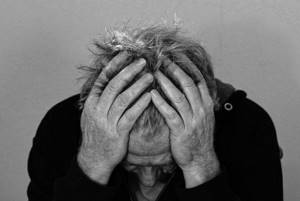
Dehydration
Any diet requires that more water be consumed than with a normal diet. For an adult healthy person, the daily norm of fluid entering the body should be at least 2 liters, unless there are special prohibitions for certain health conditions. Lack of water can be the reason why you get a headache when you go on a diet.
Heavy physical activity
Many people know that in order to lose weight, you need to create conditions under which the number of calories entering the body per day is less than they are expended. Many diets are based on this. Therefore, a low-calorie food system is often chosen. A fanatical loser, in addition to hunger, exhausts himself with physical training. But you don’t have enough energy to fully engage in sports with a low-calorie diet. Due to physical overexertion, headaches occur when losing weight, dizziness appears, and blood pressure drops.
Lack of deep sleep and nervous tension
Stressful situations accompany our lives at every step. If a person is on a diet, he needs to take into account the fact that the body is already in a stressful state. Poor sleep associated with life's troubles will only worsen the situation. If you do not give your body enough rest physically and emotionally, then headaches will become a consequence of such constant stress.
Abrupt caffeine withdrawal
For those who are accustomed to drinking several cups of coffee and eating chocolate during the day, completely giving up these foods will be another stress for the body. It’s no wonder that when I go on a diet and completely give up coffee, I get a headache in response, especially in the morning. Wean your body off caffeine gradually by reducing the amount of coffee you drink, rather than abruptly giving it up. Nutritionists say that you don’t have to give up coffee at all. Just drink it without sugar or sweetener, adding a little cream or milk.
There are many more reasons why you get headaches when you diet. For example, some people may have a reaction to artificial sweeteners such as asparkam. People who suffer at least occasionally from migraines are not recommended to replace salt with monosodium glutamate. It can cause a severe throbbing headache with nausea, even vomiting.
Finding a healthy diet that fully satisfies the desires of someone losing weight is not easy. First of all, you need to understand whether you can get a headache on this diet. It is necessary to approach the choice deeply individually, taking into account the state of the body and its reaction to food.

Hypoglycemia (low blood sugar)
Hypoglycemia occurs when blood glucose levels fall below normal levels.
Causes of hypoglycemia
- Skipping meals with diabetes.
- Alcohol consumption.
- Taking certain medications - insulin or aspirin.
- Hormonal imbalance.
Symptoms of hypoglycemia (may appear suddenly and vary in severity)
- dizziness or lightheadedness;
- loss of balance, weakness in the legs;
- fatigue;
- headache;
- severe hunger;
- mood changes, aggressiveness or anger;
- difficulty concentrating;
- arrhythmia.
Symptom of dizziness
People who experience dizziness may feel a variety of sensations, including:
- Feeling lightheaded or weak
- false feeling of falling
- instability
- loss of balance
- feeling of swimming
- Sometimes, dizziness is accompanied by nausea, vomiting or fainting.
Contact emergency medical services if you have these symptoms for an extended period of time.
What to do if you feel dizzy while on a diet?
I'm on a diet that involves counting calories and eating right. During the first month of losing weight, I didn’t feel any particular discomfort. Dizziness began to bother me at the 2nd month.
I eat 6-7 times a day, always protein foods + plant foods. In the first month I lost 5 kg, in 2 - 4 kg.
Could dizziness and my weight loss be related? How to deal with it? At the moment, I haven’t stopped the diet, I added walks in the air for about 1 hour a day.
This means that your blood pressure has dropped, and yes, this is related to weight loss, in which case you definitely need to eat something. And try not to bring yourself to such a state, eat a little, but often you will protect yourself from such situations.
Dizziness and malaise when dieting - How to overcome dizziness?
And first, let’s figure out when did you feel such an unpleasant symptom as dizziness while dieting?
If at the very beginning, then doctors tend to classify such phenomena as psychogenic. The diet has begun - if you please, touch on stress. If you feel dizzy on a diet that you started a long time ago, then your body is signaling a malfunction in its work and we need to find and correct it.
The diet has just started, the body is not accustomed to the changed diet and is experiencing stress.
In addition, during dietary restrictions, we still have to work, intensively lose calories even when working in a white collar job, not to mention heavy physical activity.
In addition, there are people around you who are unaware of your limitations. And they all chew constantly! And not only at work, but also at home. Only a stress-resistant body can withstand this.
The diet has just started, oh, how dizzy!
Get ready for such a development of events, and if you feel dizzy at first on a diet, then:
- Rule out other causes of dizziness. A visit to the doctor will help.
- You can’t explain to everyone that you want to change your body parameters and limit yourself in food. Therefore, refer to an ailment in the stomach or intestines, the majority of the people will immediately leave you behind, because we experience such problems more than once in our lives, they are not something extraordinary. You will be able to follow your diet without attracting undue attention, the body will relax and the spasm will go away, and at the same time the symptoms of dizziness on a diet will go away.
- Perhaps your blood sugar level has dropped, which is typical for those losing weight. Eat a small piece of sugar, if the pain goes away within 5 minutes, that's it. Don't deprive yourself of sweets, eat two fruits before lunch and you will forget that you have a headache on a diet.
A week has passed
And if you complain that you have a headache on a diet that you started more than a week ago, it makes sense to take a closer look at your diet:
Dizziness during a diet and the occurrence of headaches are typical for people who sharply limit any product in their diet. Most likely, this is not one, but a group of products. We are maximalists, if we exclude, then everything at once. Be smart about changing your eating habits.
Nutritionists recommend not eliminating any product completely, leaving at least a small part of it in the diet. Don't eat white bread, great! Pinch off a piece of the top when you buy it at the store for your family.
The body feels good, and you will receive the happiness hormone serotonin, which, by the way, will help get rid of dizziness when losing weight.
- Sometimes the complaints, like, I’m on a diet, my head is dizzy, are mixed with a state of weakness. Check your blood pressure. Diets that exclude salt consumption are now popular, and its absence leads to a decrease in blood pressure and weakness.
- No one has canceled a healthy lifestyle. Be in the fresh air, walk a couple of kilometers a day. Alternate working at the computer with warm-up once every half hour - avoid headaches associated with osteochondrosis - a disease of computer geniuses of the 21st century.
Try to maintain a positive mood! Having dealt with the cause of the disease, you will get rid of it in no time!
Sources used: vsepohudeem.ru
YOU MAY BE INTERESTED in: Pregnancy, dizziness, dizziness during sleep during pregnancy, loose stools and dizziness during pregnancy
Diet for dizziness
It's no secret that poor nutrition is harmful to our body. Even an absolutely healthy person finds it difficult to cope with the consequences of overeating, late-night snacking and addiction to fast food, but for a sick person this task may be completely impossible.
Poor nutrition itself can provoke dizziness, and can aggravate the course of the diseases of which it is a symptom. 1
So how to eat properly when you have dizziness?
- — First of all, avoid foods containing large amounts of salt . 2 Ideally, its consumption should be limited to 1-2 grams per day. 3 And for this it is not at all necessary to eat absolutely bland and tasteless food. You can limit yourself gradually:
1. Avoid ketchup, mayonnaise, chips, canned food, sausages and pickles.
2. While cooking, train yourself to gradually reduce the amount of salt. For example, today add not a full teaspoon to the soup, but ¾. Next time put a little less, etc.
3. Use more herbs and natural spices, they will “mask” the lack of salt.
It is important to maintain not only the diet, but also the correct balance of work and rest . Stress, lack of sleep and exhaustion often cause dizziness and other unpleasant symptoms.
5 Prevent dizziness, walk in the fresh air more often, and be sure to consult a doctor if you feel unwell.
Remember that dizziness may be a symptom of another, more serious condition.
Love yourself and be healthy!
Source: https://dielirium.ru/golovokruzhenie/golovokruzhenie-i-nedomoganie-pri-diete
How few calories can you consume in general?
A little higher we saw the recommended amount for the diet. As Dr. Loktionov points out, according to the Food and Agriculture Organization of the United Nations (FAO), the minimum amount of calories for the average person per day worldwide is approximately 1,800 kilocalories.
At the same time, calorie consumption for a man, depending on his activity and gender, should increase. This can be from 2000 to 2800 kcal. For a woman this could be from 1600 to 2400 kcal.
Despite all the recommended facts, we start some extreme diets without even estimating how many calories we eat per day. Although I don’t recommend counting calories, still. If you are a person inexperienced in dieting and losing weight, you should estimate the minimum number of calories.
If your diet is limited to 800 calories per day or less, you are on a very
low-calorie diet
. Sometimes, you may have to take some vitamins or expensive supplements to get the nutrients you need.
Know one more important fact! ... When you consume too few calories, you disrupt your metabolism. After all, the body by its nature is not created to fight hunger.
After all, we are struggling with excess weight, aren’t we? ... Or still with hunger!
That is why, by disrupting our metabolism and leaving such a diet incorrectly, we begin to gain a lot of excess weight. We start eating everything and ruining our health!
Description of the problem
When some painful conditions occur, the patient immediately after a heavy lunch feels a weakened state. In addition to dizziness from eating, the victim feels other unpleasant sensations. For example, gag reflex, increased sweating. After several such attacks, the patient’s appetite noticeably decreases; he does not want to eat anything at all in order to avoid health problems. There are also additional pathological phenomena when you feel dizzy when eating. But their presence depends on the cause of the disease.
When to Call a Doctor for Dizziness
You should see a doctor if you experience recurring attacks of dizziness. You should also immediately complain to a neurologist about sudden dizziness if it is combined with:
- traumatic brain injury
- headache
- neck pain
- high temperature
- blurred vision
- hearing loss
- difficulty speaking
- numbness or tingling
- loss of consciousness
- chest pain
- uncontrollable vomiting
These symptoms may indicate serious health problems, so it is important to see a doctor as soon as possible.
Conclusion
So, say no to low-calorie diets!
The evidence that we talked about is not in favor of such diets. I recommend that you avoid them if you do it without the supervision of a doctor.
But, if you are considering such a diet in the first place and it does not deter you, it is up to you. You just have to
care about getting more from your nutrition.
You are what you eat! Remember this expression? And this is the first reason to start eating healthy and healthy to get a slim body and lose weight naturally.
One day you decide to go on a diet. “I’ll lose weight and all my problems will go away,” you think, not suspecting that the problems are just beginning. What happens in the body when you lose weight incorrectly? What dangers may await you?
What to Expect from an Outpatient Appointment
Your doctor can find out the cause of your dizziness and any other symptoms by performing a physical examination. He will ask you questions about your dizziness, including:
- when it happens
- in what situations
- what is its intensity
- are there any accompanying symptoms?
The doctor may also examine your eyes and ears, do a neurological exam, observe your posture, and perform tests to check your balance. Depending on the suspected cause, prescribe examinations.
In some cases, no cause for dizziness is identified.
Associated symptoms and signs
Let's look at the main characteristic symptoms that may appear with dizziness while eating:
- Weakened state. The man can hardly stand on his feet, he has no strength. My only desire is to lie down and rest.
- Feeling of plugs or sound of water in the ear canal.
- Shaking arms and legs. At the same time, they get colder in a matter of seconds.
- Acute lack of air. The patient has difficulty breathing.
- Feeling cold. The victim is shaking and freezing.
- Flashing of midges and bright circles before the eyes, blurred vision.
- Strong heartbeat, which is felt in a calm state.
- A feeling of fullness in the stomach, a person feels nauseous, and vomits.
If at least one of these signs accompanies dizziness when eating, you need to seek qualified help to identify the cause.
What is dizziness?

Dizziness is a sensation of feeling lightheaded, woozy, or unsteady. It affects perception, visual orientation and can sometimes cause loss of consciousness. Dizziness is not a disease, but a symptom of various diseases.
Losing your balance can cause you to feel dizzy, but the two terms describe different symptoms. Dizziness is characterized by the subjective sensation that the room is moving. It can also cause a feeling of motion sickness or as if you are leaning to one side. Unsteadiness is a consequence of loss of balance.
This is not a specific symptom and its underlying cause is usually not necessarily serious. Sometimes there is nothing to worry about. However, you should see a doctor immediately if you experience repeated episodes of dizziness for no apparent reason or over a prolonged period.
Dizziness and imbalance are among the most common complaints when visiting a neurologist. Moreover, by the term “vertigo” many mean a variety of symptoms of dizziness: a feeling of falling, rotation of one’s own body in space, lightheadedness, blurred vision, impaired concentration, unsteadiness of gait...
More on the topic “The dangers of diets and health problems when losing weight”:
More precisely, about the absence of it. All my life I weighed 115-120, then a long course of corticosteroids +20 kg, hypokalemia. After the withdrawal, 10 kg gradually went away on their own, for another 7 I had to go on a calorie counter. I'm exhausted, everything is ok. A few years later - again GKS, counter, the same song. With BMI
KBJU. Need some advice. Weight loss and diets. How to get rid of excess weight, lose weight after childbirth, choose a suitable diet and communicate with Low-fat and low-protein diets - this is a direct path to health problems. But with carbohydrates you can’t do much...
Lose weight without risk. 5 dangers of an unhealthy diet. To the content. Danger 1. Nausea, weakness, headache. Need some advice. Weight loss and diets. How to get rid of excess weight, lose weight after childbirth, choose a suitable diet and communicate with those who are losing weight.
lowering insulin during weight loss. - gatherings. Weight loss and diets. How to get rid of excess weight, lose weight after childbirth, choose a suitable diet and communicate with those who are losing weight. Could there be psychosomatic health problems?
Conference "Weight loss and diets" "Weight loss and diets". Section: Need advice (which nutrition system to choose for weight loss if After such a medical examination, it will become clear what health problems you have. In accordance with them, establish proper nutrition.
Need some advice. Weight loss and diets. How to get rid of excess weight, lose weight after childbirth, choose a suitable diet and communicate with Slowly losing weight. My weight was 73 kg. I lose weight using this principle: counting calories. During the weight loss course they calculated 1150 kcal per day for me...
Weight loss report. Weight loss and diets. How to get rid of excess weight, lose weight after childbirth, choose a suitable diet and communicate with those who are losing weight. I think fasting to lose weight is wrong. Clinic of therapeutic fasting in Moscow. Weight loss and diets.
Weight loss and diets. How to get rid of excess weight, lose weight after childbirth, choose a suitable diet and communicate with those who are losing weight. Two questions for the experienced. 1. My husband lost weight using the Kovalkov method. Kovalkov claims that energy is first consumed from the muscles, but only...
Psychological problems. Weight loss and diets. How to get rid of excess weight, lose weight after childbirth, choose a suitable diet and communicate with those who are losing weight. If there are no health problems, is it worth changing what is given by nature?
Weight loss and diets. How to get rid of excess weight, lose weight after childbirth, choose a suitable diet and communicate with those who are losing weight. The sister is in despair (in the literal sense), not a single diet helps a person, probably obesity is genetic and there is nothing about it...
Weight loss and diets. How to get rid of excess weight, lose weight after childbirth, choose a suitable diet and communicate with those who are losing weight. If there are no health problems, is it worth changing what is given by nature? Effective diets.
Am I losing weight wrong? (many letters). - gatherings. Weight loss and diets. How to get rid of excess weight, lose weight after childbirth, choose I went on a diet, not so much a diet as a balanced diet - I excluded bread, sugar and all sorts of sweets, fatty and fried foods.
Weight loss and diets. How to get rid of excess weight, lose weight after childbirth, choose a suitable diet and communicate with those who are losing weight. My blood pressure also dropped when I went on a salt-free diet. But this is not felt at all, only with a tonometer.
See other discussions: Losing weight without risk. 5 dangers of an unhealthy diet. Danger 1. Nausea, weakness, headache. The reason for poor health lies in the following: With uncontrolled independent weight loss, hemoglobin often decreases, the balance shifts...
Dizziness - causes and treatment. Why I feel dizzy and how to get rid of it
Dizziness is not a disease, but a symptom that occurs in a number of very diverse diseases, causing the patient disorientation in space, a false sense of the mobility of objects and stationary objects relative to him or the person himself - relative to the objects around him. Extremely common, especially among elderly patients and females - it ranks second in frequency of medical complaints after headaches.
Diagnosis of dizziness is difficult, since the feeling of instability in space is extremely subjective and can vary significantly between patients, both in the degree of manifestation and in the sensory phenomena that arise.
The condition can arise suddenly and be episodic in nature: the patient experiences something like a push in one direction, as if he is being “led.”
Description
The condition can arise suddenly and be episodic in nature: the patient experiences something like a push in one direction, as if he is being “led.” In other cases, there may be a sensation of surrounding objects moving in a circle or a feeling of rotation of the person himself, as after a long spin on a carousel.
This state can persist for quite a long time – up to an hour. But more often, dizziness is expressed in a feeling of general instability of objects and the person himself, a violation of the sense of balance - the patient experiences uncertainty when walking, it seems to him that he is about to fall or stumble, the ground “leaves” from under his feet.
Sometimes the symptoms reach such strength that the patient grabs objects and experiences lightheadedness, as before losing consciousness.
Dizziness may be accompanied by other symptoms, which depend both on the reasons that caused it (the underlying disease) and on the degree of manifestation.
Symptoms
Dizziness may be accompanied by other symptoms, which depend both on the reasons that caused it (the underlying disease) and on the degree of manifestation.
Systemic dizziness (vertigo) is characterized by:
- A feeling of rotation around its axis, or rotation of the environment around it, a feeling of incorrect position of the body in space (with a tilt in one direction or the other)
- Cold extremities
- Hyperhidrosis (excessive sweating), which can be localized in the extremities or cover the entire body
- Feeling of fear, lack of air
- Feeling of unnatural lightness in the head, lack of thoughts
- Numbness of the lips, face and other warning signs of fainting, weakness, lightheadedness
- Nausea and vomiting
- Increased heart rate, increased blood pressure
- Tinnitus, hearing loss
- Flickering “fly spots”, darkening in the eyes
- Nystagmus (involuntary twitching of the eyeballs)
Symptoms appear or intensify with a sudden change in body position, head rotation, bending/lifting, looking at moving objects, or traveling in public transport.
Causes of dizziness
The causes of this condition can be roughly divided into physiological (normal) and pathological (as a result of a disease).
Physiological causes of dizziness.
Physiological causes of dizziness:
- Fast non-linear/sharp movement (rides, jumping from heights)
- Fear (due to the effect of stress hormones on the cardiovascular system)
- Hyperventilation (oversaturation of oxygen - for example, as a result of scuba diving)
- Low iron levels due to an unbalanced diet - lack of oxygen in the blood and tissues, including the brain
- Hypoglycemic conditions (due to untimely nutrition or low-calorie diet) – depletion of the body’s energy reserves
- Dizziness in women during or shortly before menstruation, during pregnancy
Pathological dizziness occurs when:
- Diseases of the inner ear (labyrinthitis, Meniere's disease, vestibular neuritis), as a result of which not only perception is disrupted, but also the conduction of auditory and vestibular impulses to the analyzer in the brain
- Osteochondrosis and cervical hernia - as a result of compression of the vessels of the neck and impaired blood supply to the brain
- Strokes, thrombosis, ischemia - when, as a result of an acute circulatory disorder, the brain experiences oxygen starvation (hypoxia)
- Migraines and BPPV (benign paroxysmal vertigo - paroxysmal, with head movements)
- Panic attacks
- Menopausal syndrome
- Brain tumors
- Taking certain medications
In total, there are about 80 diseases that cause vertigo, and only a comprehensive examination will help identify the cause and prescribe etiotropic treatment.
Dizziness. Diagnosis and treatment
Symptomatic treatment of dizziness is possible only after a doctor has determined the cause that caused it and only in parallel with qualified treatment of the underlying disease. As a rule, it includes several components: taking medications, maintaining a daily routine and physical activity, and diet.
Symptomatic treatment of dizziness is possible only after the doctor has determined the cause that caused it.
Drug therapy:
- For circulatory disorders, drug therapy will include the use of vasodilators and antihistamines and agents that improve the rheological properties (fluidity) of blood (cinnarizine, betahistine)
- Neurogenic dizziness requires taking nootropics (picamilon, gamma-aminobutyric acid), which not only improve blood circulation and nerve conduction
- Vertigo caused by osteochondrosis requires taking muscle relaxants to relieve muscle spasm
- In women, treatment of dizziness caused by menopausal changes or cycle disorders is carried out with hormonal drugs that allow the body to return the hormonal levels to normal
Mode.
It comes down to following a daily routine, the correct alternation of mental and physical activity, sleep and wakefulness.
Diet
. Avoid the use of foods that increase blood pressure and cause vasospasm and have a stimulating effect on the nervous system (coffee, strong tea, alcohol, nicotine, very salty or spicy foods).
Folk remedies.
Folk recipes include ginger root, parsley or fennel seeds, hawthorn infusion, etc.
Not a single folk remedy should be used without prior agreement with the attending physician, since even the most harmless of them may have individual contraindications.
Gymnastics.
To train the vestibular system outside of an attack, it is recommended to perform some exercises:
- Rotation of the head and body from side to side with eyes closed and open
- Swinging on a swing with a gradual increase in amplitude
- Balance exercises (stand on one leg with eyes open and closed)
- Rotate your eyes in different directions
- Swimming
When should you see a doctor immediately?
- If dizziness occurs for the first time, accompanied by nausea, vomiting or headache
- Resulted in loss of consciousness
- Weakness, tremor (trembling) of the limbs, tachycardia, sweating, feeling of lack of air, pain behind the sternum
- Lasts over an hour
- If, along with dizziness, sensitivity has sharply decreased or weakness has occurred in one half of the body, face or limb
These symptoms indicate a possible emergency condition and require urgent medical attention.
If attacks of vertigo occur periodically and their cause is known, you can relieve the symptoms on your own
Treating dizziness at home
If vertigo attacks occur periodically and their cause is known, you can relieve the symptoms yourself using the following techniques:
- If you feel dizzy after standing up suddenly, tilt your head forward and exhale completely.
- In a sitting position, bend over to your knees and maintain this position until the symptoms stop.
- Take a stable position (sitting, legs apart, resting on the floor) and focus your gaze on one point on a stationary object
- Splash cold water on your face
- Inhale ammonia vapor
- Drink some hot sweet tea
- In the future, be careful when changing body position: lie down slowly, bend over and stand up
Advantages of carrying out the procedure at MEDSI:
- Treatment of dizziness in Moscow in a convenient place at a convenient time - a wide network of clinics allows you to find a suitable branch in your area
- Availability of hardware that allows for a complete diagnosis of vertigo
- Providing assistance in case of emergency conditions accompanied by dizziness
- Reception is conducted by qualified specialists with experience - doctors of the highest and first categories
- High rating of the clinic while maintaining the average cost of services for Moscow
Treatment of dizziness in Moscow in a convenient place at a convenient time - a wide network of clinics allows you to find a suitable branch in your area
To make an appointment, call 24/7: 8 (495) 023-60-84
Source: https://medsi.ru/articles/golovokruzhenie-prichiny-i-lechenie-pochemu-kruzhitsya-golova-i-kak-izbavitsya/
Possible reasons
There may be several factors leading to dizziness when eating. Below is a list of the most common ones.
If the cause is hypovolemia
Hypovolemia is a painful condition that occurs due to incomplete breakdown of food and its entry into the intestinal tract under high pressure caused by its low moisture content. The head feels dizzy due to poor blood supply. Additionally, when eating food, the pathology is accompanied by:
- strong desire to drink;
- lethargy, high pulse;
- low blood pressure levels;
- pain in the gastrointestinal tract;
- paleness of the skin;
- insufficient amount of urine excreted.
It is worth paying close attention to these signs, since hypovolemia often leads to more severe illnesses.
If the cause is food allergy
Eating allergens can cause you to feel dizzy while eating. It makes no sense to talk about which ones exactly. It depends on the individual characteristics of the organism. Each person, in order to avoid problems, especially angioedema and anaphylactic shock, must undergo appropriate examination to identify prohibited products. Most often, allergies occur due to the use of:
Important! If you have allergies, you must take antihistamines daily.
If the cause is dumping syndrome
Dumping syndrome is a condition in which gastric juice does not fully cope with the incoming food. The head feels dizzy due to increased blood supply in the digestive area. This syndrome occurs in two stages.
- Early dumping syndrome. Starts a few minutes after eating. Accompanied by nausea. Even small amounts of food make my head feel dizzy. After all, the point is not in its volume, but in the fact that the body is not able to digest food.
- Late dumping syndrome. It begins several hours after a meal. Characteristic signs: redness of the skin, absent-mindedness, feeling of hunger.
What types of dizziness are there?
Systemic or true dizziness (vertigo) is a feeling of movement of the patient himself or the environment, accompanied by imbalance, fear, the desire to hold tightly to support, nausea, vomiting, and autonomic disorders. Systemic vertigo is usually caused by damage to the vestibular system.
Non-systemic dizziness is not a natural sensation in the head, accompanied by blurred perception of the surrounding world, unsteadiness of gait, and disorientation in space. Non-systemic dizziness is usually not associated with damage to the vestibular system.
Read about the differences between systemic and non-systemic dizziness in the table
Comparable indicator
| Systemic dizziness | Non-systemic dizziness | |
| Nature of dizziness | Paroxysmal | Permanent |
| Vegetative manifestations | Expressed | Often absent or less pronounced |
| Direction of nystagmus | Does not change when changing direction of gaze; obeys Alexander's law | It is possible to change the direction of nystagmus when looking in different directions; does not obey Alexander's law |
| Changes in the nature of nystagmus during subsequent assessments | with systemic dizziness decreases or disappears (within a few days) | Does not change (observed for weeks, months) |
Manifestation of stress
The body perceives hunger as a very dangerous situation that threatens it with death. Therefore, having not received his portion of food at the appointed time, he first increases the manifestations of hunger - his stomach begins to growl, the feeling of hunger becomes very acute, and may even be accompanied by nausea and dizziness. At this time, a large amount of adrenaline is released - this is an ancient mechanism that allows you to mobilize the body in search of food. But if food never reaches the stomach, then stress moves from the stage of excitement to the stage of exhaustion, during which the head hurts and feels dizzy. A headache is a distress signal sent by the body when it is desperate to eat.
A separate risk group consists of patients with migraines; they are much more likely to feel dizzy on an empty stomach. Patients suffering from vascular diseases, diseases of the nervous system, gastritis, and gastric ulcers also very often suffer from headaches from hunger.
“Hungry” headaches themselves are not dangerous and are not a symptom of any disease; they are one of the body’s natural reactions to a lack of nutrients. Headaches and dizziness from hunger are a signal of a potentially dangerous situation that needs to be eliminated as quickly as possible. Painkillers in such cases will not be very effective; a hearty lunch, necessarily containing a large amount of glucose, can cope with pain much better.
How can we help?
If you get a headache while dieting, you don’t need to take painkillers right away. They will, of course, help, but in this case it will be impossible to find out the cause of the ailment. To make sure that a headache is a consequence of your diet, you need to eat. If the pain subsided after eating, then it was really hunger pain. But it’s better to satisfy your hunger with the right foods, and not to fill it with chocolate. Meat with vegetable side dishes, fish, whole grain bread and dairy products are suitable for this.
You need to learn to help yourself with headaches not with pills, but with changes in diet. Here are some tips on what to do if you get a headache while dieting:
- If your blood sugar drops, just drink a glass of strong tea with two tablespoons of sugar. After 10–15 minutes the condition will improve significantly. And it’s not just a matter of missing glucose. When sugar is added to tea, catechins are released from the tea leaves, which have analgesic and antimicrobial effects.
- If the cause of the malaise is narrowing of blood vessels, then you need to eat foods rich in magnesium, which relaxes blood vessels, improving blood circulation in the brain. A lot of magnesium is found in buckwheat, bananas, avocados, almonds, pine nuts, and dried apricots.
- Headaches due to dehydration indicate a lack of potassium. You can make up for this deficiency with potatoes. It is enough to eat a couple of jacket potatoes along with the peel, and the headache will ease. You can do it simpler: eat an orange and drink a glass of plain water.
- If you become dehydrated, you need to normalize your drinking regime and drink enough water. On a weight loss diet associated with fasting, you should drink more water than usual.
- Omega-3 polyunsaturated fatty acids and fish oil have analgesic and anti-inflammatory effects. Therefore, fatty sea fish can reduce headaches and improve well-being.
You should not go on a complete hunger strike, depriving your body of the fats, proteins, carbohydrates, vitamins, and amino acids it needs. It is better to make small portions of a complete balanced diet, eat 4-5 times a day with snacks in between. Then the headache will not have time to appear.
Recently, the ice diet, in which you only need to eat frozen foods, has become very popular. As a result, more energy is wasted than is supplied. It is noted that a third of those losing weight on this diet suffer from headaches. If you have a headache all the time while on a diet, what should you do? It is recommended to change your diet, choose one that is enjoyable and does not harm the body. It is advisable to consult a nutritionist for this.
Causes of dizziness in a healthy person
People who do not suffer from any illness may feel dizzy while eating. Let's list the main reasons:
- Addiction to coffee. This drink activates the nervous and circulatory system. Consequently, it leads to an increase in blood pressure. Therefore, after a fragrant drink, sometimes you feel dizzy.
- Love for sweets. Sweets, pastries and cakes require stomach activity, so blood flows to it immediately when these products enter. The brain remains deprived of useful compounds and oxygen. That's why my head is spinning.
- Consumption of foods that are poor in substances that are a source of energy, such as glucose, causes loss of strength and weakness. Therefore, with such a diet, an unpleasant symptom also occurs.
- Some medications. A side effect may include dizziness.
Danger 1. Nausea, weakness, headache
The reason for poor health lies in a sharp weight loss. At this time, a large-scale process of fat breakdown occurs and toxic products accumulate in the body - so-called ketone bodies (acetone, beta-hydroxybutyric and acetoacetic acids). They are the culprits of the unpleasant side effects that accompany any express diet.
The destructive activity of ketone bodies is not immediately felt: at first a person feels only general weakness and fatigue, and sometimes nausea. However, as a result, the entire body suffers from ketone bodies, especially the nervous system.
Poisoning of brain neurons causes poisoning of spinal nerve nodes - deterioration of the condition of those internal organs whose functioning they regulate.
Don't chase quick results - lose weight gradually.
Feeling dizzy and weak when losing weight
These include:. Weakness, dizziness, chills, decreased muscle tone and fainting are very dangerous to health and life. As a result, a person quits the diet without completing the task. You can return your health to normal and get positive results from losing weight in the following ways:
And here is more information about sedatives for weight loss. Often when losing weight, weakness and malaise occur. There is no need to endure this condition. In order not to harm your health and achieve a positive result in losing weight, it is necessary to take measures to restore normal well-being.
Sedatives for weight loss: how do they work? The harm of rapid weight loss: why you can’t do it urgently Losing weight from stress, after it and in the background: how it affects We recommend reading an article about the dangers of losing weight quickly. From it you will learn about the process of losing weight, why you can’t lose weight quickly, and the dangers of the most popular methods of losing weight. Expert opinion.
Their effect on brain neurons provokes headaches. We recommend reading the article on how to lose weight in a few days. From it you will learn how to quickly lose weight, how to eat, as well as the rules of fasting days.
. Even some nutritionists advise taking a sedative for weight loss, because it not only prevents breakdowns in a nervous environment, but also normalizes sleep and suppresses appetite. Which sedatives should you choose? How do they generally affect the body? Read more.
Some people don’t understand why it’s impossible to lose weight quickly, and they consider weights of kg per month to be scanty. However, the real harm of losing weight quickly is that it disrupts the functioning of all organs and systems. Even the appearance suffers.
How to organize weight loss without harm to health? Often, weight loss from stress, after it, or in the background is caused by inadequate functioning of the hormonal system. The process also affects the psychological state - some people begin to “seize” problems.
Such simple products will help you stick to your diet and if you have a headache, you can easily get rid of it. The main thing is to remember to drink enough water, at least 8 glasses of water a day, but during heavy physical activity the amount should be significantly higher.
It is very important to drink water during training, as you expend a lot of energy and this can lead to dehydration. It is important to remember that under no circumstances should you starve, as this is one of the most dangerous ways to lose extra pounds.
Why does weakness occur when losing weight?
It is precisely because the body does not receive the required amount of minerals, amino acids, vitamins and beneficial elements that most often a terrible headache occurs. Be sure to have light snacks throughout the day, this will help constantly saturate your body with the necessary and necessary substances.
In fact, even ordinary foods can provoke headaches during weight loss. If you decide to lose weight and do not want to suffer from headaches, then you should give up foods such as:
The above products are not only harmful, but can also cause headaches. Also, from such products, many people gain significant weight, their metabolism is disrupted, and quite often they feel dizzy.
If you decide to prepare for the summer season or just get in shape, then be sure to do it right.
Don’t try to lose weight no matter the cost, because you don’t really want to bring yourself to the point of exhaustion and constantly feel dizzy. Remember that headaches can be so severe and bother you quite often precisely because of an incorrect diet. However, the real harm of losing weight quickly is that it disrupts the functioning of all organs and systems.
Even the appearance suffers.
How to organize weight loss without harm to health? Often, weight loss from stress, after it, or in the background is caused by inadequate functioning of the hormonal system. Stopping sudden weight loss in men and women from nervous stress can be difficult.
In some cases, the help of a psychologist is needed. Dinner is the same as lunch. I have dinner. Between meals I eat a tangerine or an apple. At about 8 pm I drink a small glass of kefir with or without a crust of black bread. I've been feeling weak and dizzy for a couple of days now.
Dizziness with weight loss
Maybe you need to add something to your diet? Or is this the body’s way of begging for food? I forgot to write that I eat about a gram of chicken and the same amount of vegetables at a time. I drink 2 liters of water. Normal menu.
Perhaps you ate much more before the diet, so your body is indignant. You'll be rushing soon. Diversify your diet. Measure your blood pressure. A teaspoon of honey with warm water on an empty stomach will not hurt. You have a bit too much meat.
Why so much? Once a day is more than enough.
While losing weight, many people lose their mood, feel unwell, feel nauseous and weak. To avoid loss of strength, you need to know the reasons why weakness occurs when losing weight. During the breakdown of fats, all accumulated toxins enter the blood.
There should be more carbohydrates! Replace breakfast with porridge. Buckwheat, oatmeal that takes a long time to cook, brown rice - this will not make you gain weight, but it will give you more energy. I also really like quinoa, but it's expensive.
Add fish, cottage cheese, nuts, dried fruits. Author, you will feel bad until you understand one thing: a diet does not mean that you limit yourself to certain foods for a certain time.
https://www.youtube.com/watch?v=69DWNhDsZeM
In this article I would like to reveal the answer to a question that is of interest to not so many people, but sometimes occurs. We will talk about dizziness associated with weight loss.
Often people experience a feeling of dizziness and attribute this only to weight loss. What are the reasons why sudden weight loss can lead to dizziness? Find out the answer to this question below.
Diet should become your way of life, food is varied and brings joy! Energy is provided by slow complex carbohydrates of cereals; you don’t have them at all. No wonder, add porridge in the morning and preferably a little buckwheat, brown rice, bulgur, Quinoa for lunch.
It's better to eat protein for dinner. For breakfast, include carbohydrates such as buckwheat and oatmeal. You can even have a little dark chocolate. You can have more eggs per week. Also replace the chicken with lean beef or veal. For lunch, include light vegetable soups and fatty fish in your diet. It’s better to have porridge in the morning, diversify your lunch - chicken, beef, fish, buy a vitamin complex, and also diversify your fruits.
Thanks everyone for your comments. In the morning I will introduce porridge, meat for lunch, for dinner I want a salad, kefir, fruit and some protein food. Regarding lifestyle: when I reach the treasured kg, I’ll diversify the menu a little and will always stick to it!
I realized that before, nutrition was completely useless. It was as if I had been turned away from everything I had previously eaten. And I began to feel very easy. During a protein diet, weakness and dizziness are often observed.
T e you have a normal reaction to such a menu. Read the side effects of any protein diet. You cannot sit on it for more than 2 weeks, and you must take a complex of vitamins.
I would tolerate it for up to 2 weeks, if you don’t feel too bad, and then I started adding healthy carbohydrates, and the menu needs to be diversified.
Good diet, balanced. But you need to count calories, if less, then increase. Just in case, you can go to the doctor and donate blood. Where did you read that the author consumes only proteins? Cleanse your body! Intestines, liver, lungs. Lots of different methods.
Weight loss and headaches
Try it according to Marva Ohanyan. Many people are treated by her and even lose weight.
Author, aren’t you sick of chicken yet? In this article I would like to reveal the answer to a question that is of interest to not so many people, but sometimes occurs.
We will talk about dizziness associated with weight loss. Often people experience a feeling of dizziness and attribute this only to weight loss.
How to avoid dizziness
To avoid dizziness, it will be enough to follow a few simple recommendations. Namely:
- Eliminate allergenic foods from your diet.
- When following a diet or fasting, you need to drink dietary supplements to replenish the deficiency of nutrients.
- Do not overeat after a long period of abstinence from food.
- Do not overeat, do not abuse foods that are too high in calories.
- After eating, you shouldn’t rush headlong to run errands, but take time to rest, lie down, and relax. After the food is digested, you can begin to solve everyday problems.
Weakness while dieting
But this is not felt at all, only with a tonometer. See other discussions: Losing weight without risk. The reason for poor health lies in: If you lose weight on your own without control, hemoglobin often decreases, the balance shifts. If you have health problems, then take a course of IV drips, and then you will sit on a Japanese one. Additional vitamins for weight loss. Girls, I’ve been on a diet for 5 days now. It’s easy, maybe because fasting and the internal clock are positive towards abstinence.
The site hosts thematic conferences, blogs, ratings of kindergartens and schools, articles are published daily and competitions are held.
If you find errors, problems, or inaccuracies on the page, please let us know. User menu Login to the site.

